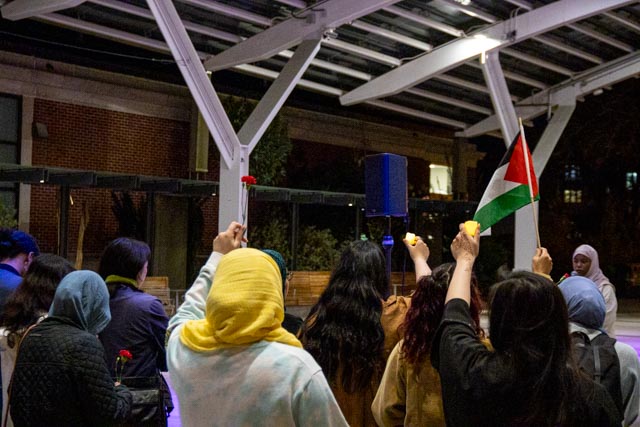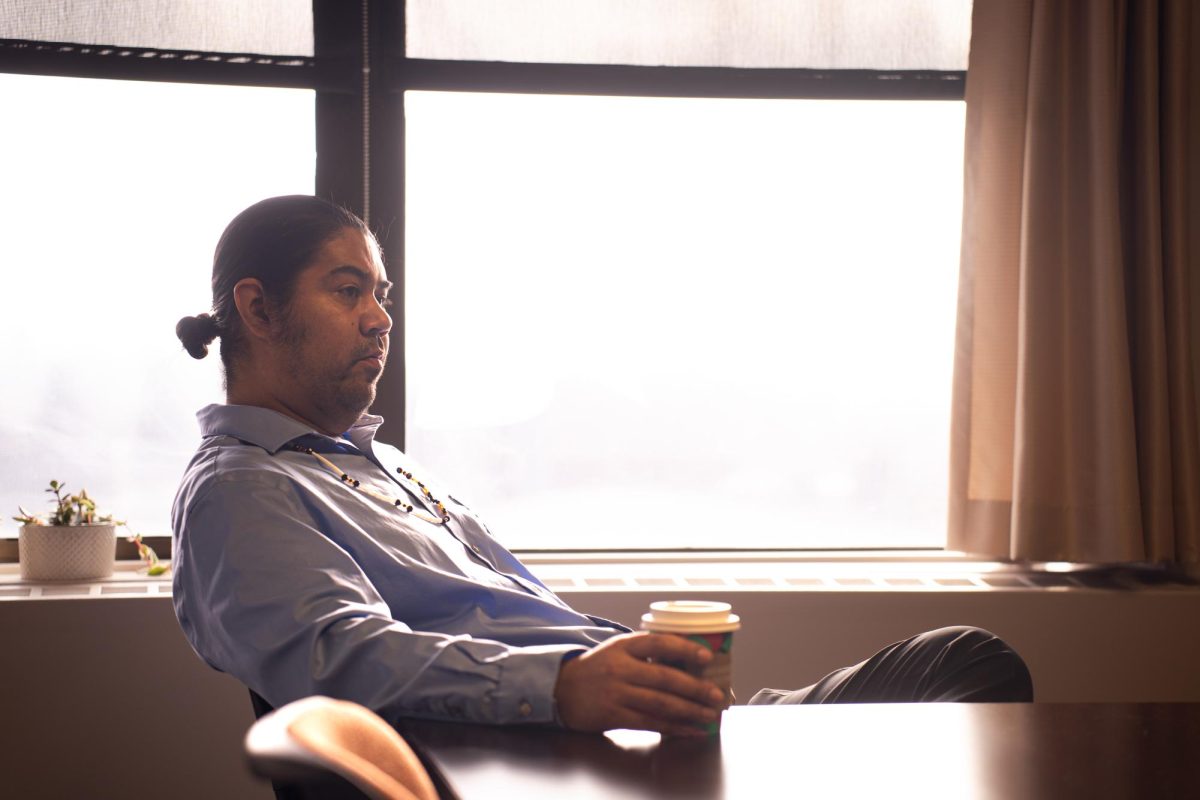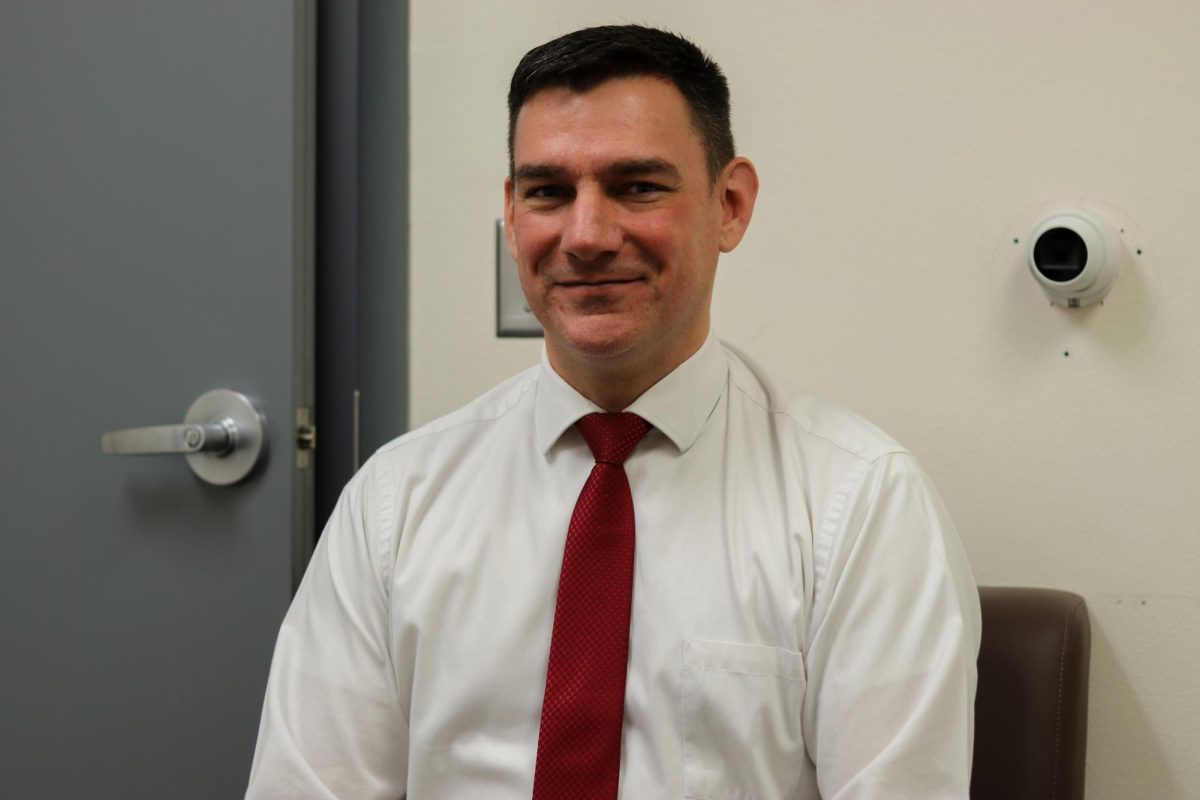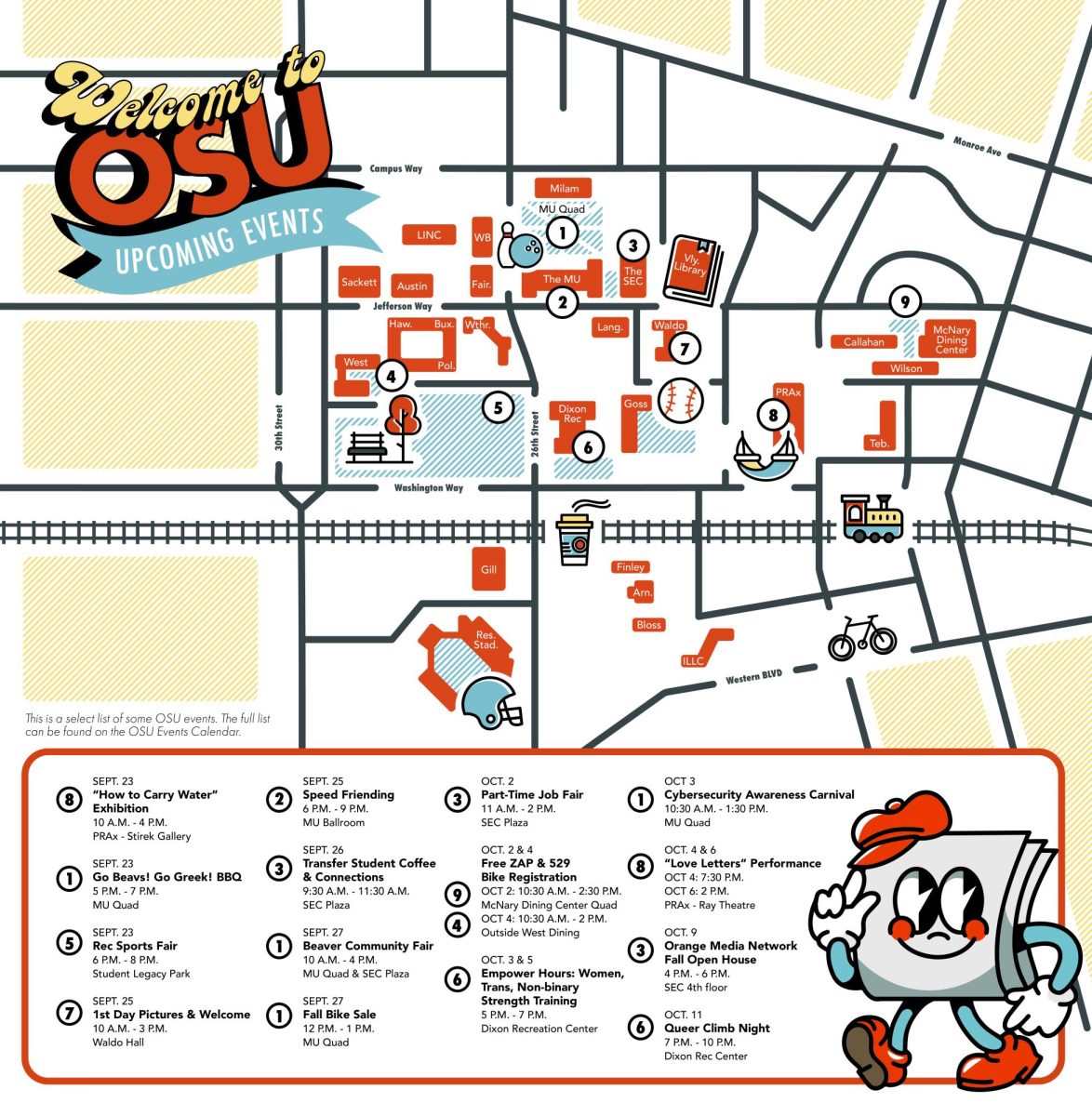Almost seven years ago since their founding, Students United for Palestinian Equal Rights hosted an iftar and vigil on campus in support of the Palestinian people.
The event consisted of two parts: first, an iftar to break fast on the last few days of the holy month of Ramadan, and then a candlelight vigil with speeches written by Palestinian women of OSU’s community.
Heba, the president of SUPER, who prefers to keep her full name anonymous for her own safety, said these events are especially important right now, and they want to give people a place to grieve.
“We’ve always been mourning my people,” Heba said.“This gives OSU students a place to do that with others and not alone. It’s important that we are that support system for each other because no one else is going to be.”
Vice president of SUPER, Sophie, who also prefers to keep her last name private, said that handling such an emotionally taxing subject is not easy for anyone – let alone people who are directly involved.
“A large tool of colonizers and oppressors is to wear people down until they physically cannot resist anymore, and until they lose a sense of self-worth and belonging,” Sophie said. “The importance of events like these lies both in the community we build through shared grief, as well as maintaining a sense of pride in relation to our identities.”
SUPER hasn’t taken a break from hosting these community events since the violence against the Palestinian people, often referred to as genocide by multiple sources including SUPER and the governments of South Africa and Ireland, escalated in October of last year.
According to the New York Times, On Oct. 7, 2023, Israel launched an offensive into the West Bank of Palestine following an attack from the militant group, Hamas, which killed 1,200 Israelis.
The initial response on Israel’s part consisted of airstrikes, as well as cutting off access to necessities like food and water, before enacting a ground invasion.
According to data collected by the Gaza Health Ministry, at least 30,000 Palestinians – including both civilians and soldiers – have been killed so far.
According to the Public Broadcasting System, which published a link to the report in January, South Africa’s government has opened a case against Israel in the International Court of Justice, accusing the Israeli government of genocide.
In addition to South Africa and Ireland, many well-known organizations stand behind the Palestinian people, including UN Crisis Relief, Doctors Without Borders, UNICEF, Oxfam, Save the Children and others.
The vigil’s MC, Fatima, who also prefers to keep her last name private to avoid unsafe situations, said that her identity as a Sudanese person – with family and friends struggling through the war happening in Sudan – reminded her of her own struggles for justice and freedom.
“For decades, our Palestinian brothers and sisters have endured hardships, from displacement and occupation to loss and injustice,” Fatima said. “Their faith, resilience and unwavering determination in the face of adversity is truly remarkable.”
During the vigil, one of the speakers, Enas, who also requested to keep her last name private for her safety, shared a speech that brought tears to many of the attendees. She said that, as a Palestinian woman, she doesn’t feel like she is represented in most spaces and that a shift must occur.
“Building a platform is important because the media has been heavily Zionist over the years,” Enas said. “When we protest and continually demand justice for Palestine, we switch the currents. Pressure works, and the right people need platforms.”
The iftar’s goal was not only to shed light on what is happening in occupied Palestine, but also to pressure the school to listen to the body of marginalized students. According to Sophie, OSU’s impact recognizing, condemning and divesting from Israel and their affiliated partners would make a difference.
“We want OSU to understand that their indifference is what contributes to ongoing oppression everywhere,” Sophie said. “It means nothing to give lip service about diversity and inclusion, especially in reference to marginalized communities, when they know they could play an active role in advocating and uplifting students like us.”
















































































































